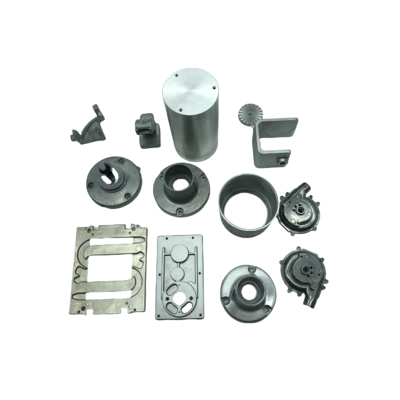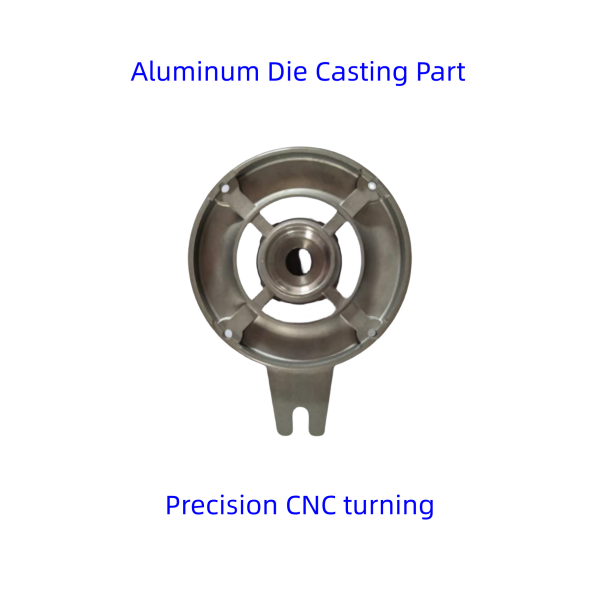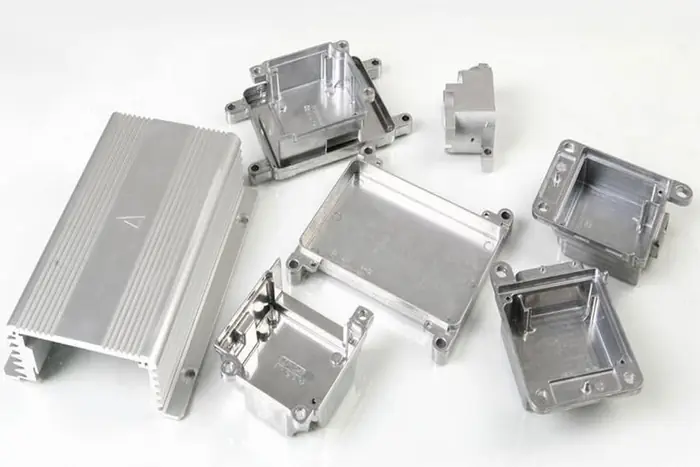Why more manufacturers are choosing Precision aluminum casting for custom parts
A Comprehensive Guide to Selecting the Right Shop Solutions for Your Task Demands
Picking the appropriate shop services is essential for the success of any type of project. Each casting approach-- sand spreading, financial investment spreading, and die spreading-- has distinct advantages. Comprehending these alternatives helps in making notified decisions. Material selection, production capacities, and quality control are vital aspects to think about. In addition, reviewing prices can impact long-lasting stability. Aluminum Foundry. What factors should guide this decision-making process?
Comprehending the Various Kinds Of Shop Services
While the world of shop solutions may seem complex in the beginning look, recognizing the different types can considerably streamline the production procedure. Foundries commonly focus on casting steels, and the primary kinds include sand casting, financial investment casting, pass away spreading, and centrifugal spreading.
Sand casting involves creating molds from sand and is perfect for big elements or low-volume manufacturing. Investment casting, on the various other hand, provides high accuracy for complex layouts, making it ideal for aerospace or medical applications. Die spreading, defined forcibly molten metal into mold and mildews under high pressure, is efficient for automation of smaller parts.
Centrifugal spreading uses rotational pressure to disperse liquified steel, producing solid, cylindrical elements. Each solution type has distinctive advantages and is selected based on specific project requirements. Understanding these differences permits suppliers to select one of the most ideal factory service, inevitably boosting effectiveness and product top quality.
Secret Variables to Take Into Consideration in Product Choice
Picking the appropriate material for shop services is a vital action that influences the overall success of a job. Key consider material option include mechanical buildings, thermal resistance, and rust resistance - Precision aluminum casting. Recognizing the intended application and its demands is crucial; materials should withstand operational stresses while keeping honesty with time
An additional crucial factor to consider is the product's compatibility with the selected production process, as some materials are much better matched for details methods. Cost-effectiveness likewise plays a substantial function, as budget plan constraints can restrict alternatives.

Last but not least, schedule and preparation of products can influence project timelines, making it essential for job managers to examine these elements completely. By carefully reviewing these components, one can ensure an extra successful and efficient shop service experience.
Assessing Manufacturing Abilities and Technologies
How effectively a foundry can fulfill job specifications depends upon its production capacities and innovations. A thorough evaluation of these aspects is important for task success. Production capabilities include the shop's capability to deal with varying job timelines, sizes, and complexities. Comprehending the shop's tools and machinery is necessary, as modern-day technologies such as computer system mathematical control (CNC) machining and progressed mold-making strategies can substantially boost precision and performance.
Additionally, the foundry's use of cutting-edge products and procedures, such as 3D printing or shed foam spreading, can offer benefits pertaining to style adaptability and cost-effectiveness. It is also vital to assess the factory's capacity to scale manufacturing, guaranteeing that they can suit future rises sought after without jeopardizing quality. By thoroughly examining these elements, task supervisors can make enlightened decisions regarding which shop is ideal suited to meet published here their particular production demands and technological assumptions.
Relevance of High Quality Guarantee in Steel Spreading
Quality control stands as a crucial pillar in the steel spreading industry, making sure that every component meets rigorous requirements and requirements. This process involves organized tracking and examination of each stage of manufacturing, from preliminary style to final inspection. Executing extensive top quality guarantee methods improves the reliability and efficiency of cast parts, lowering the probability of defects that directory can endanger architectural stability.
Furthermore, effective high quality guarantee cultivates trust between foundries and clients, as adherence to high criteria signifies dedication to excellence. It likewise lessens expensive rework and hold-ups, simplifying production processes. By recognizing potential problems early, top quality assurance not only safeguards the end item however likewise adds to continual renovation within the shop's procedures. Inevitably, focusing on quality control in metal spreading is essential for accomplishing client complete satisfaction and keeping a competitive edge in the market.
Assessing Cost-Effectiveness and Budget Restrictions
While passing through the intricacies of factory services, examining cost-effectiveness and budget plan constraints becomes a vital aspect for organizations. Understanding the complete cost of possession includes greater than simply the initial cost; it needs an analysis of long-lasting costs, including products, labor, and operational effectiveness. Companies should request thorough quotes that outline all potential costs, making it possible for a more clear contrast in between different foundries.
In addition, organizations have to evaluate their details task needs versus budget restrictions. This includes assessing the trade-offs in between reduced prices and potential effect on top quality, preparations, and integrity. It is crucial to take into consideration whether the chosen factory provides scalable remedies that can fit future requirements without considerable monetary pressure. By thoroughly stabilizing cost variables with job goals, firms can make educated choices that enhance both budget and performance, guaranteeing successful results for their factory projects.
Regularly Asked Concerns
Exactly How Can I Guarantee Timely Shipment of My Foundry Project?

What Accreditations Should a Shop Company Have?
A trusted foundry company must have accreditations such as ISO 9001 for quality monitoring, ISO 14001 for ecological monitoring, and industry-specific accreditations that show compliance with security and efficiency requirements relevant to the casting procedure.
Can I Check Out the Foundry Before Deciding?
Yes, seeing the shop prior to making a decision is usually recommended. This allows prospective customers to examine the center, satisfy the team, and guarantee that the solutions line up with their particular project requirements and criteria.
What Is the Typical Preparation for Custom Castings?
The common lead time for customized spreadings varies why not look here from four to twelve weeks, depending upon the intricacy of the design, material specs, and the foundry's ability. Timely communication can frequently quicken the procedure.
Just How Do Foundries Handle Design Modifications During Production?
Shops normally fit style modifications during production by executing adaptable procedures. They analyze the influence on prices and timelines, interact with customers, and readjust process to guarantee high quality while lessening interruptions to the production routine.
